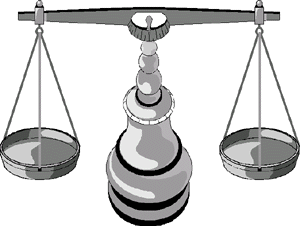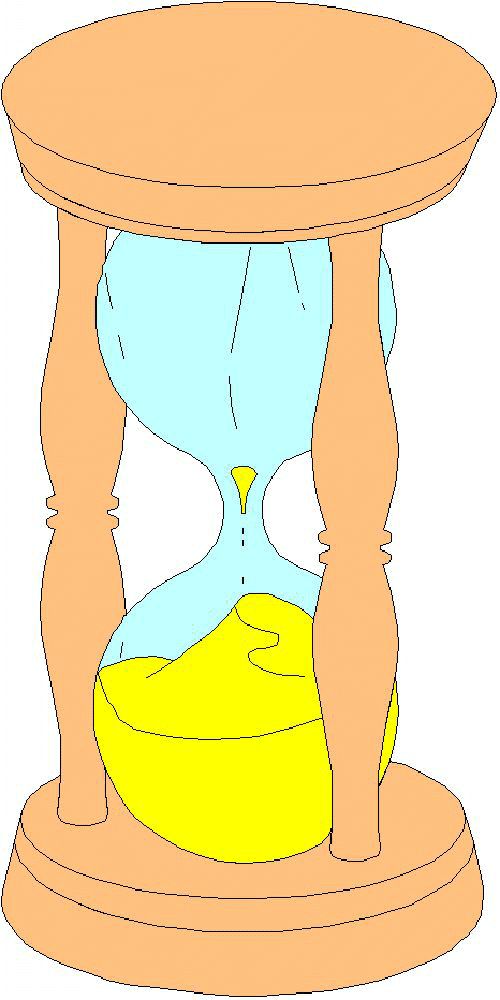Seasons of the Moon - Tishrei 5759
This publication is also available in the following formats: ![]()
![]()
Explanation of
these symbols | Subscription
Information | Seasons of the
Moon Archives
THIS MONTH'S SIGN
Libra / Moznaim
 The seventh is always holy. The seventh day is Shabbat,
the seventh year is shemita. So too, the seventh month
- Tishrei - is sanctified with more mitzvot and holidays
than any other: Rosh Hashana; The Ten Days of Return;
Yom Kippur; Succot; Shmini Atzeret; Shofar; Lulav; Etrog; Hadassim;
Aravot; Succah...
The seventh is always holy. The seventh day is Shabbat,
the seventh year is shemita. So too, the seventh month
- Tishrei - is sanctified with more mitzvot and holidays
than any other: Rosh Hashana; The Ten Days of Return;
Yom Kippur; Succot; Shmini Atzeret; Shofar; Lulav; Etrog; Hadassim;
Aravot; Succah...
The sign of the month of Tishrei, Libra, is called in Hebrew Moznaim, which literally means "balances." It's not difficult to see the connection between the symbol of the balances and the month of Tishrei, for the first day of Tishrei is Rosh Hashana, a day when the future of the world and all its inhabitants literally hangs in the balance.
The Rambam (Maimonides) writes that a person should see himself, and the whole world, as being on a knife edge, precisely and exquisitely balanced, half meritorious and half culpable. If he does one sin, he tips the balance of his own life and that of the whole world to the negative side. However, with just one positive action, he can alter the balance of his own life and that of the whole world to the side of blessing and life!
The Children of Time
G-d communicates with us through the days, the months
and the years. Nothing would seem more evanescent and transitory
than the agency of time: "Here today and gone tomorrow."
But because G-d has made the days, the months and the years the
instruments of His Will, they are more imperishable and more accessible
than any priest, monument or temple.
 Rabbi Samson Raphael Hirsch once wrote "The
catechism of the Jew is his calendar."
Rabbi Samson Raphael Hirsch once wrote "The
catechism of the Jew is his calendar."
Priests die, monuments decay, temples and altars fall to pieces, but time remains forever. A priest can minister to but a few. Monuments and temples require you to visit them. (And usually we need their comfort most when we are not drawn to them or when depression dooms us to isolation.) Not so the Children of Time; Shabbat, Yom Tov, Rosh Chodesh: They do not wait for us to come to them. They come to us unannounced, and you cannot refuse them. Like children, they throw their arms around us and we cannot stop their holy embrace. They find us whether we are in the full flight of success or the depths of depression. They find us whether we are on a desert island or in the teeming pandemonium of the metropolis. They find us in health and they visit us on our sickbed. And always they hand us G-d's word: Admonishing and warning, inspiring and comforting.
Like He who sends them, they are ubiquitous: Time greets all things contemporaneously. Though the hour may differ, every second is the same second on one side of the world as it is on the other. Time fills the North and the South, as it fills the East and the West.
The Jewish calendar has two dual cycles: A dual cycle in the year and a dual cycle in the day. One of the yearly cycles begins in Tishrei in the autumn, and one yearly cycle begins in Nissan in the spring. One of the cycles of day begins at night: "And it was evening and it was morning...." This is the cycle of Creation itself. The other cycle is that of the Beit Hamikdash, the Holy Temple where everything commences with the first light of the day.
This autumn-year is the year of the creation of the world. We count by it the years of Creation, of worldly matters. But there is another year. A year which begins in Nissan; a Spring-year. This is the year of the Jewish People. The year which begins with the redemption. This is the year by which we count the Jewish months and its festivals.
These two dual cycles stand as two opposites. Of death and life. Of extinction and resurrection. Of the transitory and of the eternal.
If we eliminate the Jewish spark from our lives, all the world begins in the darkness of autumn and goes towards the darkness of autumn. Without that Jewish spark, the day begins in darkness and goes toward darkness. No matter how high is the noon sun of material success, everything flows from night inexorably towards night, towards a blossomless and darkening autumn. Without that Jewish spark, the wreckage of Time proclaims our lives but a brief walk between two darknesses.
But the Jewish world is the world of spring. A world which begins in day and ends in day. A world which proclaims that nothing is by chance. That everything is infused with an everlasting life-force. And all is directed to an eternal Spring of an eternal world. That spring-world teaches us that even sadness and bereavement are transformed into joy. For this world is merely a foyer in front of a great palace of light. In this spring-world, their is no grief over a transcendent moment which has slipped past us, for the most fleeting second is an everlasting blossom in the garland of perfection. It teaches us that even in the midst of the storm of a deep winter's night, redemption flourishes, making its home inside where there is perpetual spring and day.
This is the message of the spring cycle to the autumn cycle. This is the message of the day to the night. This is the message of Judaism to the world.
However, before the idea of the eternal, of the spring world, can take hold in our hearts, we must first be able to hear the trumpet of the autumn world - the shofar. Tishrei confronts us at the beginning of each year of our mortal pilgrimage seeking to end the illusion that strength will never wane, that greatness is permanent, that joy and pleasure are unassailable.
Before we can count from the spring, we must first learn from the autumn-world to build the succah of our lives amidst the transitory and perishable, on a soil cleared of deception and illusion.
SEASONS OF THE MOON is written by Rabbi
Yaakov Asher Sinclair and edited by Rabbi
Moshe Newman.
© 1998 Ohr Somayach International - All rights reserved. This publication
may be distributed to another person intact without prior permission. We
also encourage you to include this material in other publications, such
as synagogue newsletters. However, we ask that you contact us beforehand
for permission, and then send us a sample issue.
This publication
is available via E-Mail
Ohr Somayach Institutions
is an international network of Yeshivot
and outreach centers, with branches in North America, Europe, South Africa
and South America. The Central Campus in Jerusalem provides a full range
of educational services for over 685 full-time students.
The Jewish Learning
Exchange (JLE) of Ohr Somayach offers summer and winter programs in
Israel that attract hundreds of university students from around the world
for 3 to 8 weeks of study and touring.
A Final Journey
With which he daily greeted his Maker,
He begins his final journey.
Leaving behind the crackling leaves
of an underfoot Autumn-world,
The bitter-sweet adieu-view
of a world receding.
The garment that once he wore
Now is wearing him
On this his last journey,
Born, like an eternal scroll of loving
life
To the gateway.
Designed and Produced by the Office of Communications - Rabbi
Eliezer Shapiro, Director
Production Design: Eli Ballon
![]()
![]() Copyright
© 1998 Ohr Somayach
International. Send us Feedback.
Copyright
© 1998 Ohr Somayach
International. Send us Feedback.







